The number of rep visits retailers receive is shrinking while pressure on their businesses is growing. RN went out and asked store owners how this situation might be improved
RN exposed the drastic fall in rep visits retailers have experienced in recent years, as margins have been squeezed and suppliers have placed their focus elsewhere.
“Suppliers are continually reducing operational costs and seeking to lower the cost to serve. This results in less ‘feet on the ground’ support for the industry in general,” says David Gilroy, former Bestway director and co-founder of Store Excel.
Yet, in an age where the use of data and technology is opening opportunities for stores to catch up with the intelligence and innovation of online retailing, reps could hold the key to helping independent retailers capitalise.
Companies such as Trax are already partnering with a number of major suppliers to use imaging hardware and data-driven software to help gain a greater sense of control of what is selling and where. Trax is using reps ‒ as well as cameras ‒ to get out to stores and discover where products are being stocked.
During an effort to boost sales ahead of this year’s World Cup, Trax worked with Coca-Cola’s Russian division, which tasked its reps with taking pictures of displays from across the country and feedback what they were seeing.
By using the information and adapting the advice and programmes they were working on with stores, Coca-Cola reduced out of stocks before the World Cup by 63% providing an uplift in sales of 6.4%.
“Enlightened suppliers are data-hungry and want front-end sales information to better understand the sell-through performance of products and at what time of the day or week sales materialise,” Gilroy says.
With the opportunity for mutually beneficial and profitable initiatives and information sharing in the years ahead, RN asked a wide variety of retailers from across the UK about the way they work with reps and how things might be bettered.
What has emerged from this research is a number of areas for improvement and minimum standards that store owners feel they need to see in the future.
Retiring the old ways of working
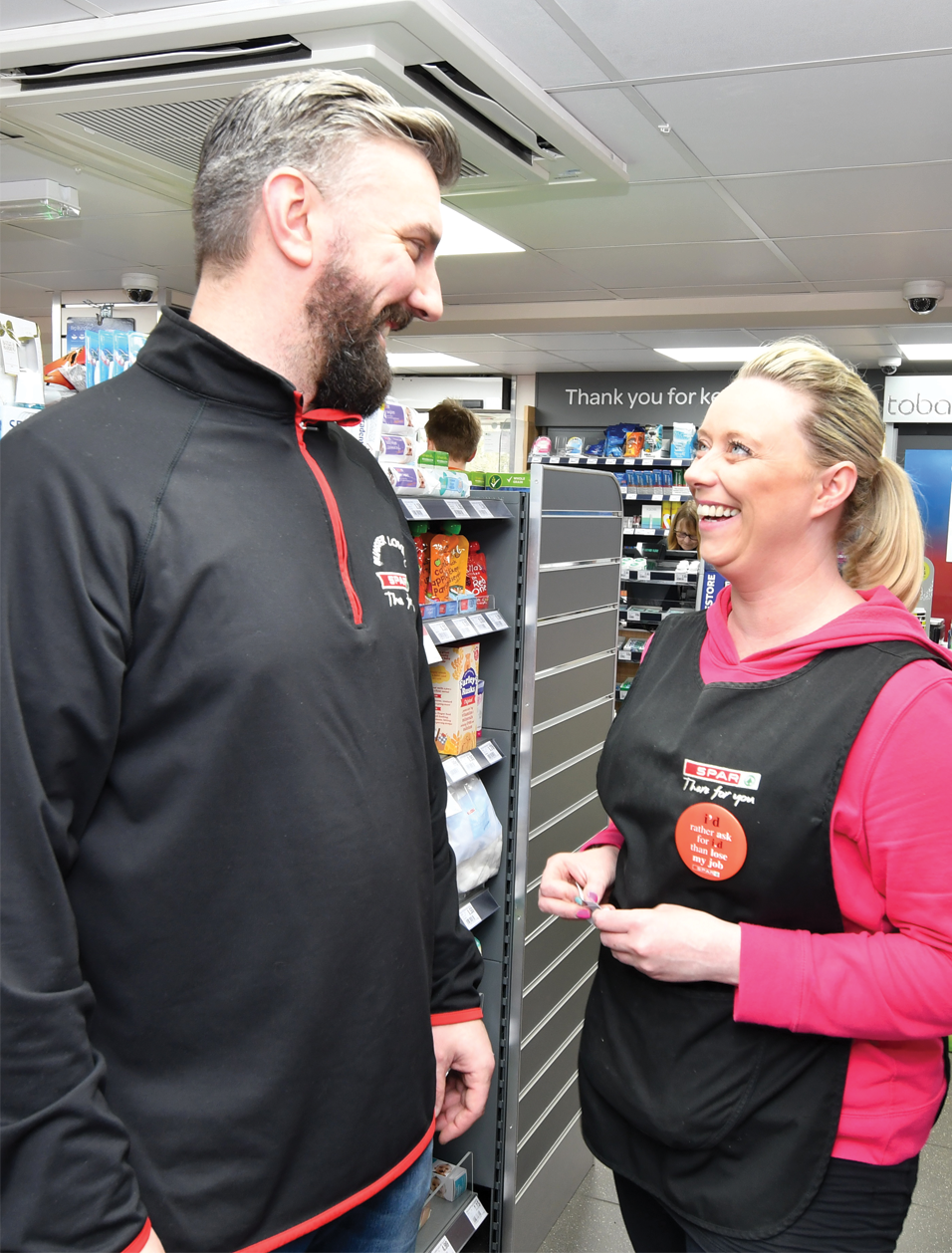 One clear way that suppliers could ensure that their reps are presenting themselves as experts is through providing cross-category advice. Major suppliers have built websites around doing just this, but it seems that on the ground, retailers often face a different picture.
One clear way that suppliers could ensure that their reps are presenting themselves as experts is through providing cross-category advice. Major suppliers have built websites around doing just this, but it seems that on the ground, retailers often face a different picture.
“Mars and Cadbury reps are regulars in my store, but they’re not looking across or even within categories,” says Scott Graham, of McLeish in Inverurie, Aberdeenshire. “They are just making sure that you’re carrying their lines and have a certain amount of facings for their products. They’re not giving wider, tailored advice.”
The picture is similar in the world of tobacco, too, according to Nainesh Shah, of Mayhew News in Mayfair, central London. “At the moment, the tobacco industry is really fighting with each other. The market is shrinking, so the number of reps coming in is enormous, each one trying to keep their products on our shelves. The market has become very tight,” he says.
Ultimately, retailers like these are tiring of feeling like their stores are the battleground in a war between companies that ultimately benefits them little. When rep relationships work they can make a real difference to a store, but retailers are also now less likely to fall for
a gimmick in these cynical times, it appears.
Shelley Goel, owner of One Stop Gospel Lane in Birmingham, puts it succinctly: “At the end of the day, the aim is to make money. Reps give you free pens and free cinema tickets – but you have to think long-term with these things.
“Do you really want a £3 cinema ticket when you could have £30 in your pocket instead?”
David Worsfold, of Farrants Newsgent in Cobham, Surrey, meanwhile, laments the arrival of tobacco reps who pressure him into stocking new and unproven products. “If a rep comes in and says they will give me a £10 voucher to buy £100 of stock when actually it’s just going to clog up my gantry for two years, then I’ll say ‘no’,” he says.
With a growing number of category management websites cropping up across every category, suppliers seem to be aware of the added category-management value they need to provide retailers with. Yet, the fact this comes up repeatedly as an issue with retailers serving different communities suggests they still feel like too many hollow rewards are being given away in place of real advice that would benefit them.
Building a strategy together
Moving away from the ways reps and retailers have worked in the past, many retailers want their visits to become a time when a strategy is laid out that helps their businesses improve.
“Reps need to do more than just suggest new products,” says Shah. “We can, and do, keep abreast of new product developments ourselves, so I think the relationship will change and they will have to offer more than that.”
What this “more” means will be different for each supplier, but an example of the best practice retailers are looking for comes from McLeish.
“Fife Creamery is our supplier for food service and local lines,” says Graham. “Their rep comes and he’s brilliant: he’s got a real depth and knowledge of dairy products and comes up with tailored ideas for our store.”
As far as Graham is concerned, this is a relationship that benefits both parties. “It’s a win-win, because we take his products and he helps us grow,” he says.
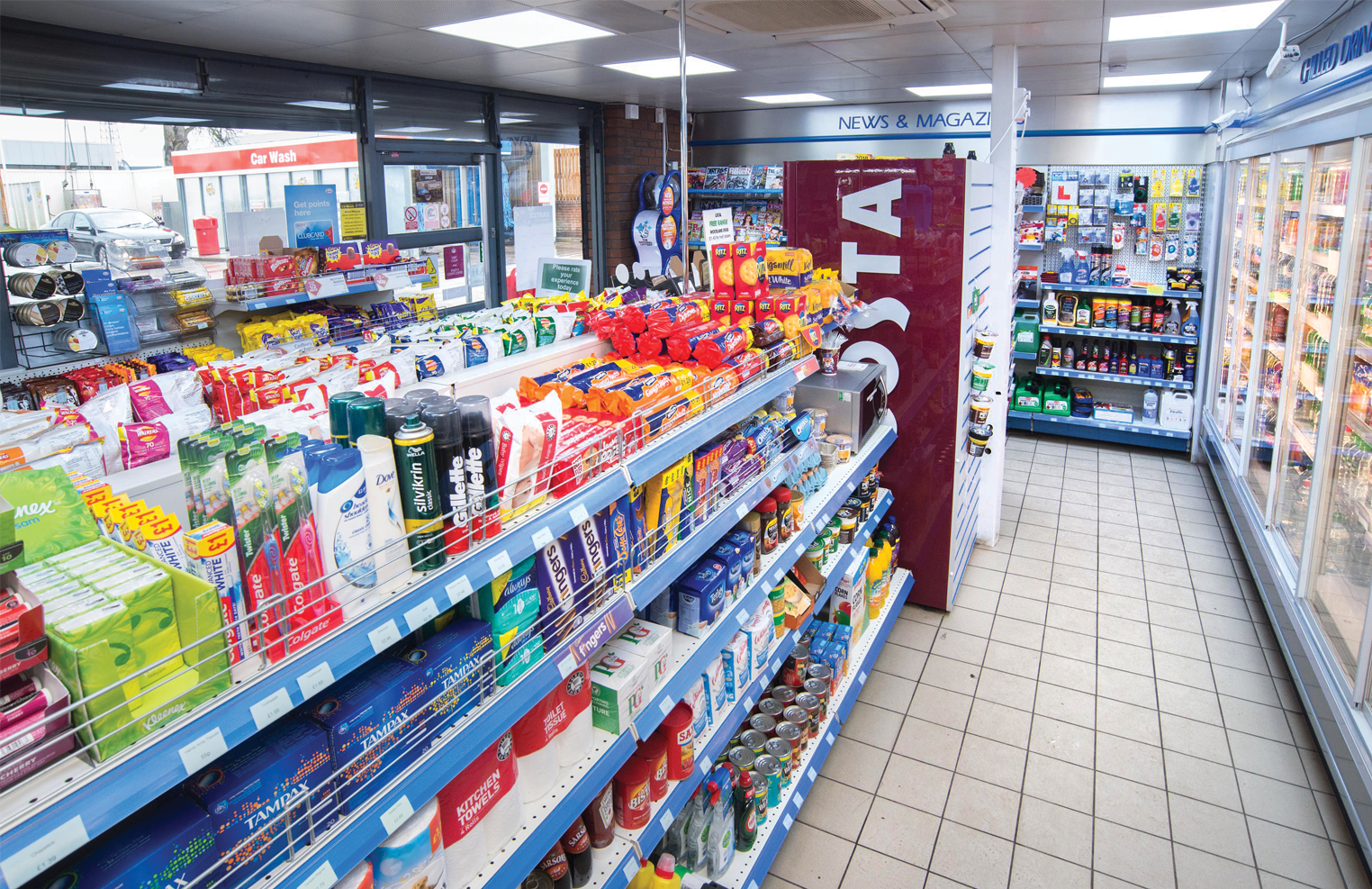
“He came up with unique ideas for our salad boxes, for instance, and brought in new sandwich fillings that he felt would work in our store – that’s the kind of relationship you want.”
This goes far beyond what many reps now offer, but it’s clear that this is what many retailers feel is needed. “I wouldn’t call him a rep, more a business partner: someone who brings real value and suggests fresh ideas,” Graham says.
Londis retailer Dave Hiscutt agrees that things need to change: “I predict, with the cost of everything going up, brands will need – and want – to get more out of their store visits.
“They need the contact and they need to be feeding us information for sure, but they need a way of communicating with us that works.
“They need to help themselves, and establish what they are trying to achieve from their visits.”
Let us build relationships
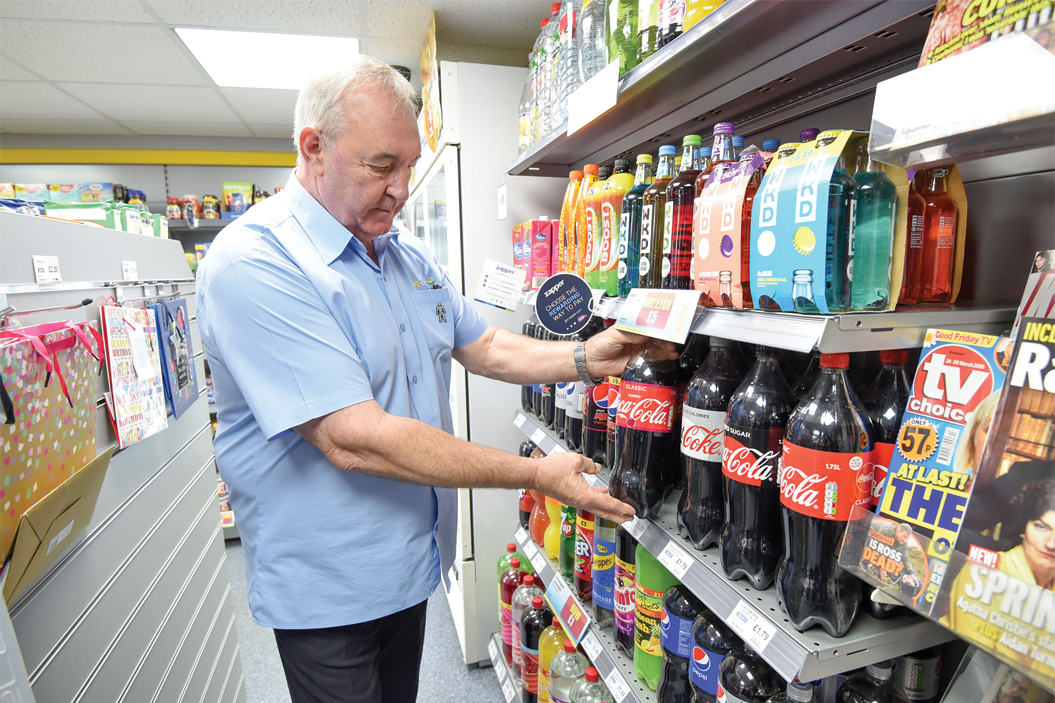
Is this opportunity being taken by suppliers? Not according to some top retailers. “This is the moment for reps to shine, but they’re not,” says Worsfold, of the typical rep who walks through the door in his business.
With brands fighting for a place in a world of squeezed margins, discounters on the march and ever-more-compelling own-brand options, reps could be the ones who educate store owners and their staff on how to upsell, utilise brand equity and grow category sales. What Worsfold sees, however, is missed opportunities.
Farrants Newsagent has a large tobacconist range and sees the relationships he has with cigar reps as a model for other categories. “I know Tom at Montecristo and he knows my business. If a customer has a problem with a cigar not smoking properly, I know that Tom will happily swap the product over when he’s next in. He’ll help me learn more about the products and invite me to events because Tom knows that if he doesn’t turn up, then someone from his competitor, Tor Imports, will be straight in instead,” Worsfold says.
Instead, retailers see too many inexperienced reps whose arrival in store can be uninvited and ultimately counterproductive, Worsfold says: “They are merchandisers, not sales reps, and they’ll be from an agency. They will have learned a script and they will tell me to move one product above another because of some numbers that they’ve been told to recite. They’ve never been in my store before and I know what sells – I’ve been here for 30 years and it can be quite insulting when they behave as though I know nothing about my shop.”
Make an appointment
To create this modern relationship, retailers feel a number of steps need to be taken. Top of the list, for Hiscutt, is reps making appointments for their visits. “We’d like to see less unplanned interruptions and much more structure in how they deal with us,” he says.
“It might be my day off, or I could be tied up dealing with an issue and nothing comes out of the visit. So, rather than sporadic communication and randomly turning up, I’d ask suppliers to email us with us a list of dates and explain what they want to cover. If a rep comes in randomly, they should do it to check compliance, not to talk business strategy.”
And, additionally to this, some reps are winning plaudits from store owners for embracing the modern age and using social media to keep conversations going and making sure best practice and top deals are made aware to other retailers.
“What works really well with Imperial is that we’ve got a WhatsApp group between the central sales team, the store managers and the local sales reps,” says Hiscutt. “We can report 100% availability in one store, which is great, or tell them which store we’re out of stock of Gold Leaf or whatever. We’re all in the loop. Any agreements we have made, we post in that group, and we make a note of all new products to list.”
Being ready for the multi-site age

Store owners also want reps to understand the way that many businesses have had to shift and evolve to succeed in the world of modern convenience. Gone are the days when reps could assume that the independent retailers they make contact with would be single-store family-run operations: the market is diverse and retailers run sophisticated multi-site businesses.
Hiscutt is one such retailer and he says reps need to reflect the business he operates when they arrive at his stores. “My opinions are based on us running five sites, so it’s a multi-store perspective. From our point of view, having random reps turn up without notice to just one of our stores can be a problem – you end up with diluted information, which only goes to one store manager.
“If you turn up without an appointment to talk to one store manager, you can end up in a situation where the decision makers aren’t getting all the information. We prefer to work with one central person, who will talk to us and strategise for us as a five-shop group,” he says.
This allows Hiscutt to ensure he’s making the best choices for his business: “We can then make an agreement about running a promotion or listing an item, and communicate those decisions down across all our store managers, so no-one’s left out. Rather than telling us to change a lot of things in one store and not thinking about the other ones, we expect the sales rep to be measuring compliance across all our stores.”
Employ experts
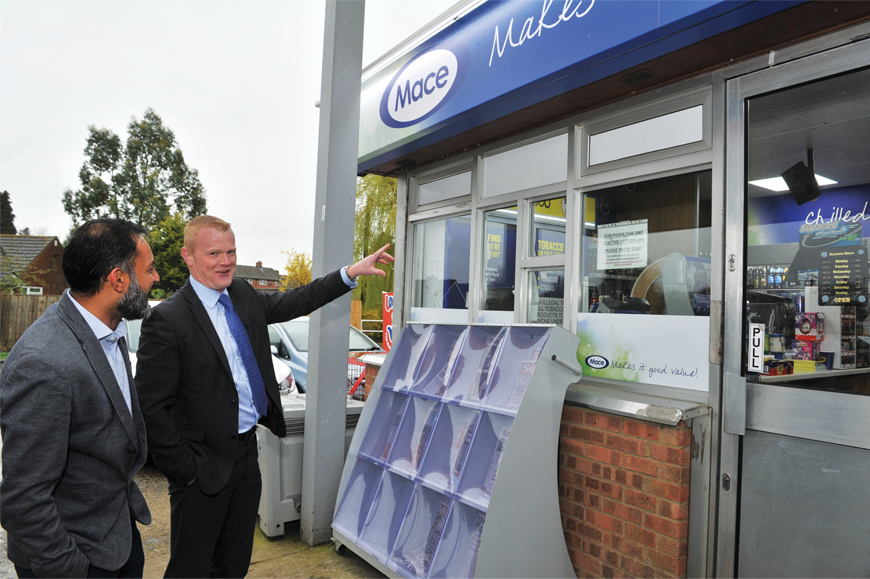
As Worsfold and Graham have shown, retailers have lots of great experiences with reps.
“I am very positive about reps,” agrees Peter Lamb, of Lamb’s Larder in Bells Yew Green, East Sussex. “We get visits from Augustus Nowell, D&D and Biltong Boys every two weeks and I don’t think we’d stock their products if they didn’t come in.”
Lamb is always looking to for something to help differentiate his business from his local supermarkets, and the reps he gets the greatest benefit from provide products that help do this. “You can be too busy to go to a cash and carry and look at all the different products available, so if someone can come in and show you a product, explain a range and tell you how it’s best displayed, it really helps,” he says.
During these visits, Lamb expects to be able to try a new product, learn more about what a company is offering and have any of his questions answered, which means the reps involved must be highly educated about the products and brands they work with.
Lamb’s store is located in an affluent village where local products tend to win out, but across the country, store owners can be frustrated when reps aren’t clued up on the job they are doing.
Dee Gobherdan, of Albany Rd Post & WHSmith Local, says she gets ignored by reps all the time, by reps who haven’t been told or don’t know that they should be visiting her. “Reps just walk straight past us. Even though we’re indie, they don’t consider us.
“It’s holding us back from getting any deals they might be offering. We’ve had to specifically approach a Walkers Crisps rep through Smiths News.”
Gobherdan accepts that the situation hasn’t been helped by the fact her store is now a WHSmith Local and has taken on its branding, but feels like reps should know about the stores operating in their areas.
“It’s now only by chance, when we go to our Booker depot, that we run into reps by chance,” she says.
While retailers may wish for improvements in how they work with reps, there is clearly a respect and a wish to work more closely with them where possible
“I’m no pushover, but these are professional sales people. If somebody came in who didn’t look professional or didn’t know much about their products it wouldn’t impress me,” says Lamb.
Yet, even with this level of knowledge, retailers also need a level of consistency.
“In the weeks where a rep doesn’t come in our orders can halve or drop to nil,” Lamb says.
What store owners want
1. More clear advice that helps stores profit
When retailers make time for a visit in their day, they want to come away with concrete ideas that can help their business.
2. An end to gimmicky rewards
“I’d rather know how to make £30 profit than get a £3 cinema ticket,” said one exasperated retailer.
3. See the same rep regularly
Retailers relish the bonds they make with great reps and want to build trust and mutual understanding.
4. Better understanding of multi-site store owners
Today’s businesses are often complex multi-site operations, yet retailers can feel patronised and advice can be diluted if reps don’t know this.
5. Make appointments
Store owners are busy people and, to get the most out of a store visit, retailers need reps to make appointments and arrive on time.
6. Use social media to communicate
WhatsApp groups help stores get advice whenever they need it and help stores make links, through a supplier, to other businesses nearby.
7. To focus on building strategies rather than pushing products
The best reps sit down, set targets and follow up with retailers. Pushing the latest new product is rarely welcomed.
8. To have a strong understanding of the industry
Reps are speaking – very often – to people with decades of experience in the industry who want high-level advice and insight.
9. An end to brand v brand fighting
This is a competitive industry but competing suppliers should not treat store owners simply as a battlefield for a particular brand.
10. Embrace new technology
Brand investment in technology will help store owners keep up with digital promos, displays and pricing – reps need to help stores through this process.
Industry viewpoint: Retailers will have a huge role to play in the future of convenience
Martin Smethgurst
MD EMEA, Trax
It’s surprising to hear that some retailers think reps have had their day and even sadder to hear that some suppliers are choosing to disinvest in their field sales teams.
The role of reps will change dramatically over the next five years because of technological advances that companies, such as Trax, are already bringing to market.
At the heart of these innovations is taking on-shelf images, collecting that data and then using that to create products and execution strategies that are as efficient as possible.
Using Trax, reps will be able to reduce the time they spend auditing by 90% and so will have a more strategic role in the partnerships with convenience stores.
The insights gathered from Trax allows reps to have fact-based conversations with retailers. The data is clear and concise, meaning they can accurately inform retailers on how to make their shelves perform better. In turn, this means that reps will play a major part in helping convenience stores compete against both online retailing and the supermarkets.
None of this will be a complex process for either retailer or rep. Simply by taking a series of digital photographs of the shelf, reps gain highly accurate and never-before-accessed insights in real time, meaning they can spend more hours in-store collaborating with retailers to grow category and store sales. As a result of this, convenience stores will see fewer out of stocks and improved visibility for must stock brands as well as enhanced store-specific space, range and merchandising execution.



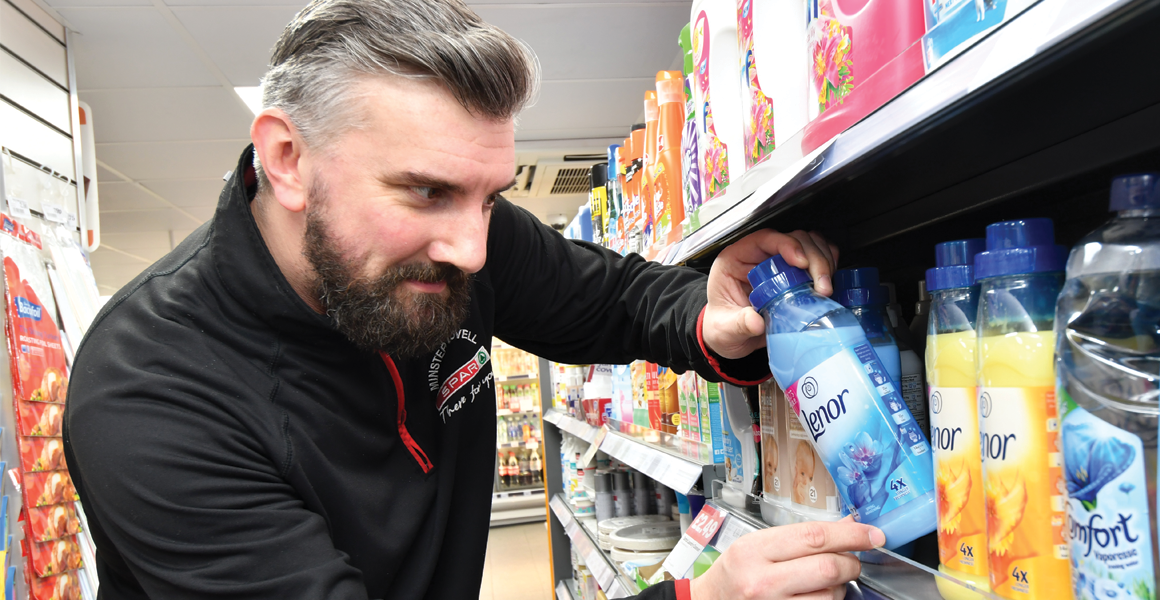

Comments
This article doesn't have any comments yet, be the first!